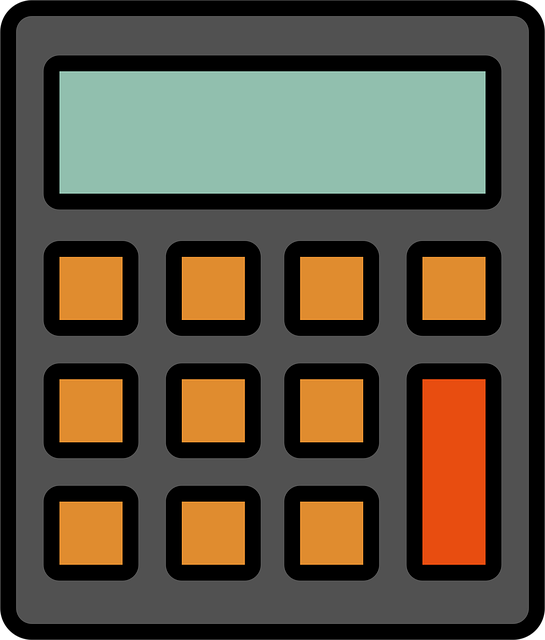Debt consolidation loans combine multiple debts into one with potentially lower interest rates. A debt consolidation loan calculator helps assess savings by inputting current debts and desired terms. Calculators compare offers from lenders, aiding informed decisions for improved financial management, especially with bad credit histories. Understanding repayment schedules and loan term impacts is crucial, with templates available to organize debts and track progress. Using these tools reduces borrowing costs, streamlines debt management, and secures the best consolidation terms based on individual financial needs.
Understanding debt consolidation terms is crucial before merging multiple debts. This comprehensive guide navigates the landscape of debt consolidation loans, helping you make informed decisions. From types of consolidation loans to calculating repayment terms and interest rates, we demystify each aspect. Learn how to decipher repayment schedules and utilize a debt consolidation loan calculator for better financial management. By mastering these concepts, folks can revolutionize their debt burden and foster a more stable financial future.
- Types of Debt Consolidation Loans Explained
- Calculating Loan Repayment Terms
- Interest Rates and Their Impact
- Understanding Repayment Schedules
- Debting Consolidation Calculator: How It Helps
Types of Debt Consolidation Loans Explained

Debt consolidation loans come in various types, each with its own unique features and benefits. The most common categories include secured and unsecured loans. Secured loans require borrowers to put up collateral, such as a home or car, which can lower interest rates but carries the risk of losing the asset if repayments are missed. Unsecured loans, on the other hand, don’t require collateral, making them easier to obtain but often with higher interest rates.
When considering a debt consolidation loan, it’s crucial to use a debt consolidation loan calculator to estimate monthly payments and overall savings. This tool helps compare different loan offers by factoring in variables like principal amount, interest rates, and repayment terms. Additionally, understanding the process of how to consolidate debts involves creating a debt reduction plan template that outlines each debt’s balance, minimum payment, and new consolidated payment. By exploring these options and tools, individuals can make informed decisions about debt consolidation vs. credit card debt, ultimately leading to better financial management.
Calculating Loan Repayment Terms

When considering debt consolidation, understanding loan repayment terms is crucial. One effective tool to help navigate this process is a debt consolidation loan calculator. This calculator allows borrowers to input their current debts and desired consolidation amount, then provides an estimate of the new, consolidated loan terms. By using this tool, individuals can better grasp the implications of consolidating their debts, including interest rates, repayment periods, and monthly payments.
A debt consolidation loan calculator enables users to explore different scenarios, helping them make informed decisions about managing their debt effectively. For those with less-than-perfect credit, it’s important to note that while these programs can offer a fresh start, they may come with higher interest rates. Exploring various debt consolidation strategies and comparing offers from different lenders is key to finding the best solution for successfully managing debt and achieving financial stability.
Interest Rates and Their Impact

When considering debt consolidation, understanding interest rates is paramount. These rates significantly impact the overall cost of borrowing and, consequently, the effectiveness of your debt relief strategy. A debt consolidation loan calculator is a valuable tool to help you gauge the potential outcomes based on different interest rate scenarios. By inputting details like the amount owed, the desired repayment term, and current market rates, these calculators provide an estimate of monthly payments and the total cost of repayment.
In the UK, with its diverse credit landscape, managing bad credit can complicate matters. However, even for individuals with less-than-perfect credit histories, debt consolidation offers a potential solution. When comparing options, it’s crucial to look beyond advertised interest rates and consider other factors like fees, loan terms, and the overall reputation of the lender. Utilizing a debt relief calculator app can streamline this process, allowing you to compare various debt consolidation scenarios tailored to your specific circumstances, including contrasting it with the burden of credit card debt.
Understanding Repayment Schedules

When considering debt consolidation, understanding repayment schedules is paramount. These plans typically involve a single monthly payment that combines all your existing debts into one manageable sum. A crucial aspect to explore is the term of the loan – shorter terms usually result in higher monthly payments but less interest paid overall, while longer terms lower monthly burden but extend the cost over time. Utilising a debt consolidation loan calculator can help you visualise these options and choose what suits your financial goals and capacity.
A well-structured repayment schedule should align with your budget, aiming to reduce your overall debt burden. Debt reduction plan templates are available online, offering a framework to organise your debts by interest rates and repayment terms. By doing so, you can strategically tackle high-interest debts first and focus on lower interest rates later, ultimately saving money in the long run. Remember, comparing different loan offers is vital; a thorough debt consolidation loan comparison will ensure you secure the best terms and conditions for your financial journey towards freedom from debt.
Debting Consolidation Calculator: How It Helps

A Debt Consolidation Calculator is a valuable tool that simplifies the process of understanding and planning your debt repayment journey. This calculator enables users to input their current debts, interest rates, and repayment terms, offering an instant estimate of their monthly payments and overall savings potential with different consolidation strategies. By utilizing this calculator, individuals can gain insights into how consolidating their loans might reduce the burden of multiple repayments, saving them money in interests charges over time.
This process empowers borrowers to make informed decisions when exploring debt consolidation options. With a clear view of the potential outcomes, they can compare various loan offers from different consolidators and find the best fit for their financial situation. Whether it’s through lowering interest rates, extending repayment terms, or combining multiple debts into one manageable loan, understanding these parameters beforehand ensures borrowers choose the most suitable debt consolidation strategy to consolidate my loans effectively.
Before consolidating your debts, thoroughly understanding the terms and conditions is vital. By exploring different loan types, calculating repayment terms, grasping interest rates, and learning about repayment schedules, you can make an informed decision. The Debt Consolidation Loan Calculator is a useful tool to estimate monthly payments and total costs, helping you navigate this process efficiently. Equip yourself with knowledge to find the best solution for managing your debts effectively.
